It was a cold, smoggy afternoon or rather evening in Beijing. 3.30 PM but looked like 7 PM. We pored through our maps and figured out that the Jingshan Park, one of the ‘must sees’ in this city was at a stone’s throw from our hotel. Did a bit of reading about Jingshan and in warm attire, strolled across the road and soon we were at the eastern gate of the park. Incidentally, the park has 4 gates, of which only 3 are open to the public, the ones on the eastern, western & southern sides. At the entrance were the ubiquitous Guardian Lions which are seen before all public offices & places of historical relevance. The lion holds a globe, indicating ‘power or control’ over the world while the lioness holds a playful cub indicating ‘nurturing’.
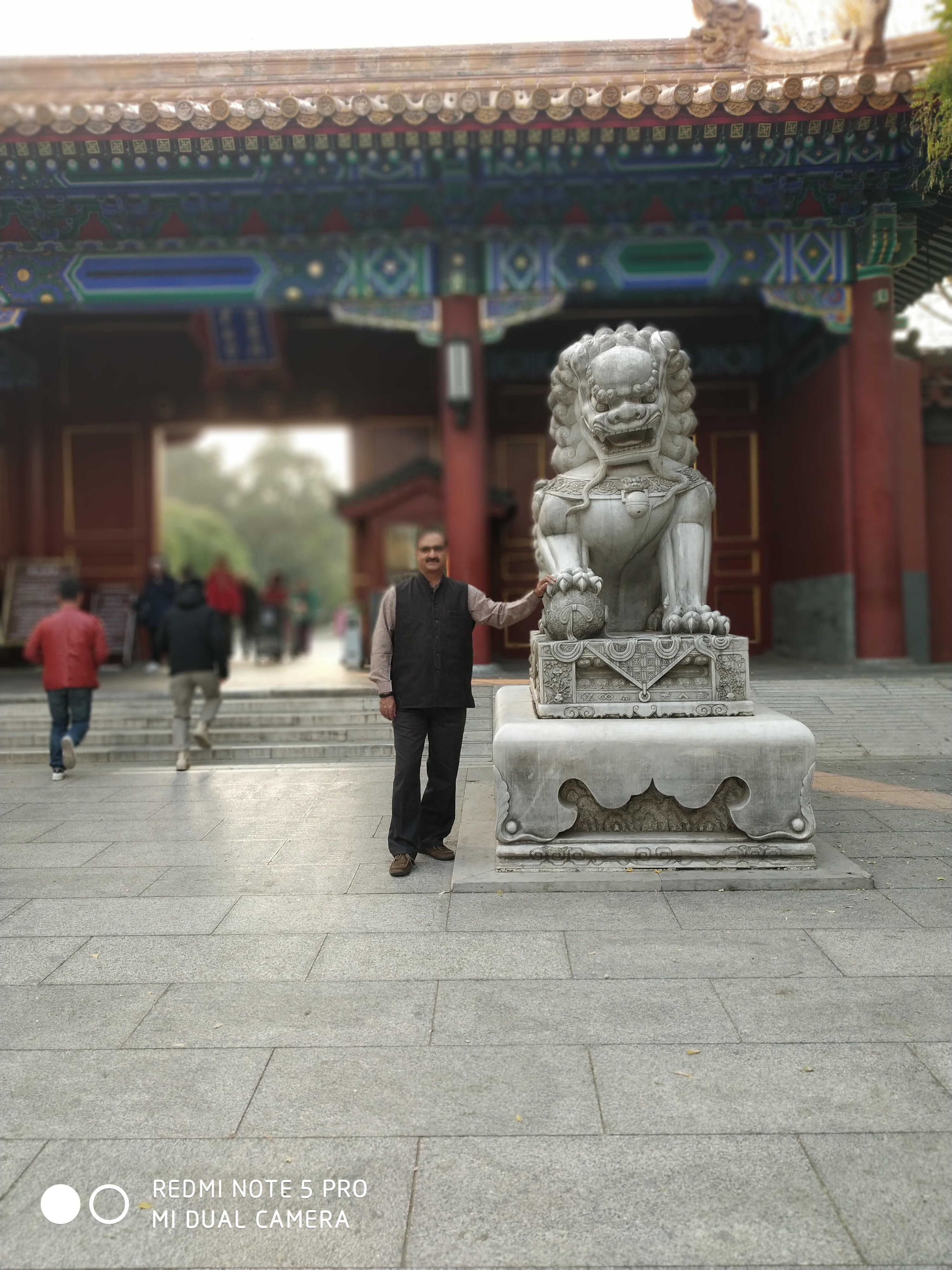
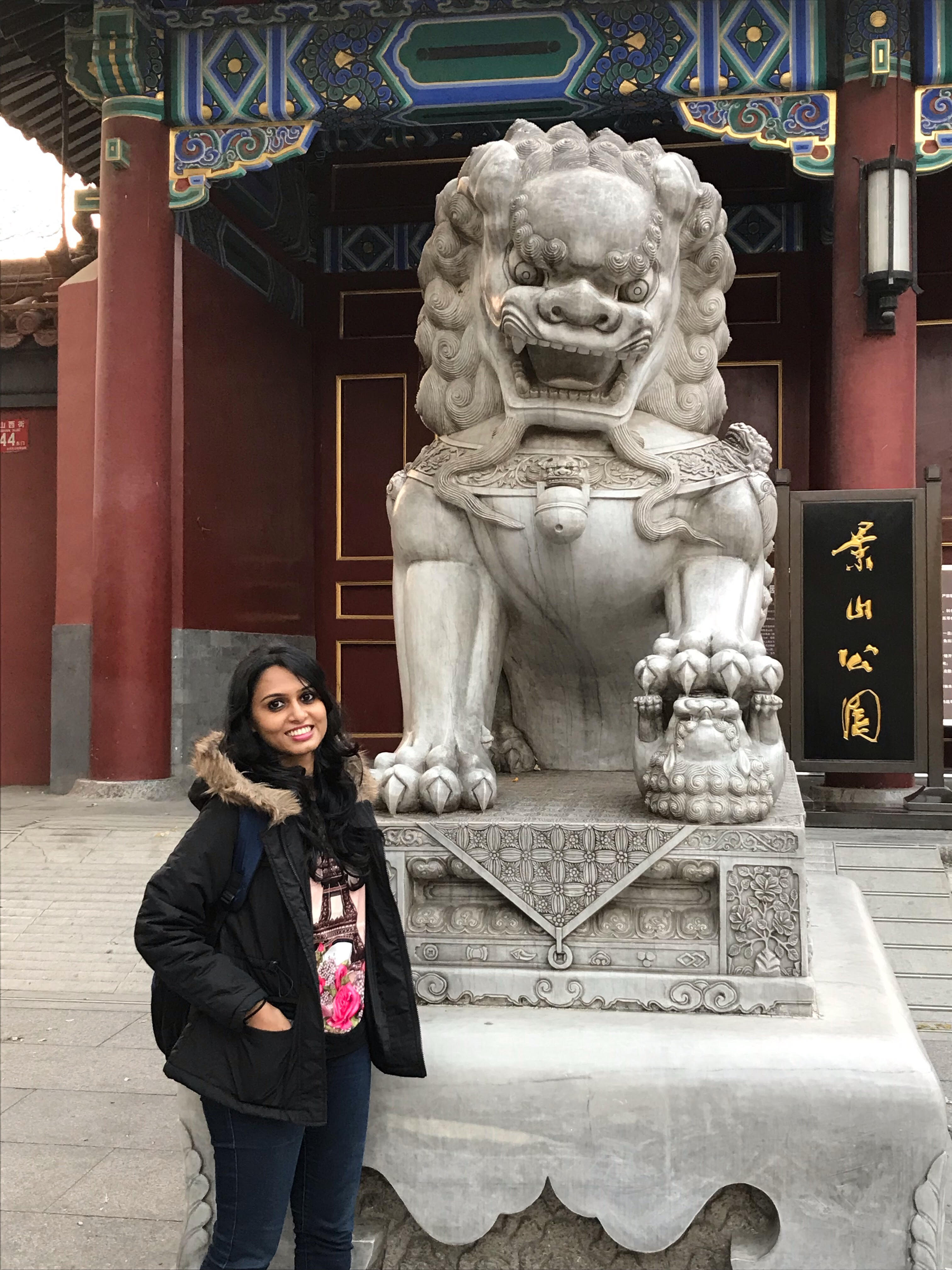
A two yuan entrance ticket later, we were inside the park. Being late autumn, the greenery and colorful flowers were missing but the tall cypress trees looked majestic in their yellow hue. A different look!

Not too crowded. Mostly locals taking brisk walks or strolls and some indulging in dancing to music holding colorful ribbons. We were told, we should have entered from the southern gate from which it would be easier to climb the steps up Jingshan Hill. Hill? Yes. Historically, Jingshan Park was a part of the Imperial Palace Garden in the Forbidden City complex from the time of the Yuan dynasty. During the rule of the Ming dynasty, it was decided to construct a moat around the Imperial Palace, the moat exists even today. What was to be done with the excavated soil and debris? The Mings used it to create the artificial Jingshan Hill or Feng Shui Hill as it is called. It was however formally established as a park for the public as late as 1949.
Now that we had taken a different entrance, we huffed and puffed our way up a steep, winding uneven path up the hill and soon we were up there. There are five pavilions one for each direction and a larger one in the centre, the Wanchun Pavilion. We visited The Guanmiao Pavilion & the Zhoushang Pavilion. They all appear similar — octagonal structures with traditional roofs and locked doors. Originally, each of these pavilions were said to have statues of the Buddha, which were plundered during invasions.
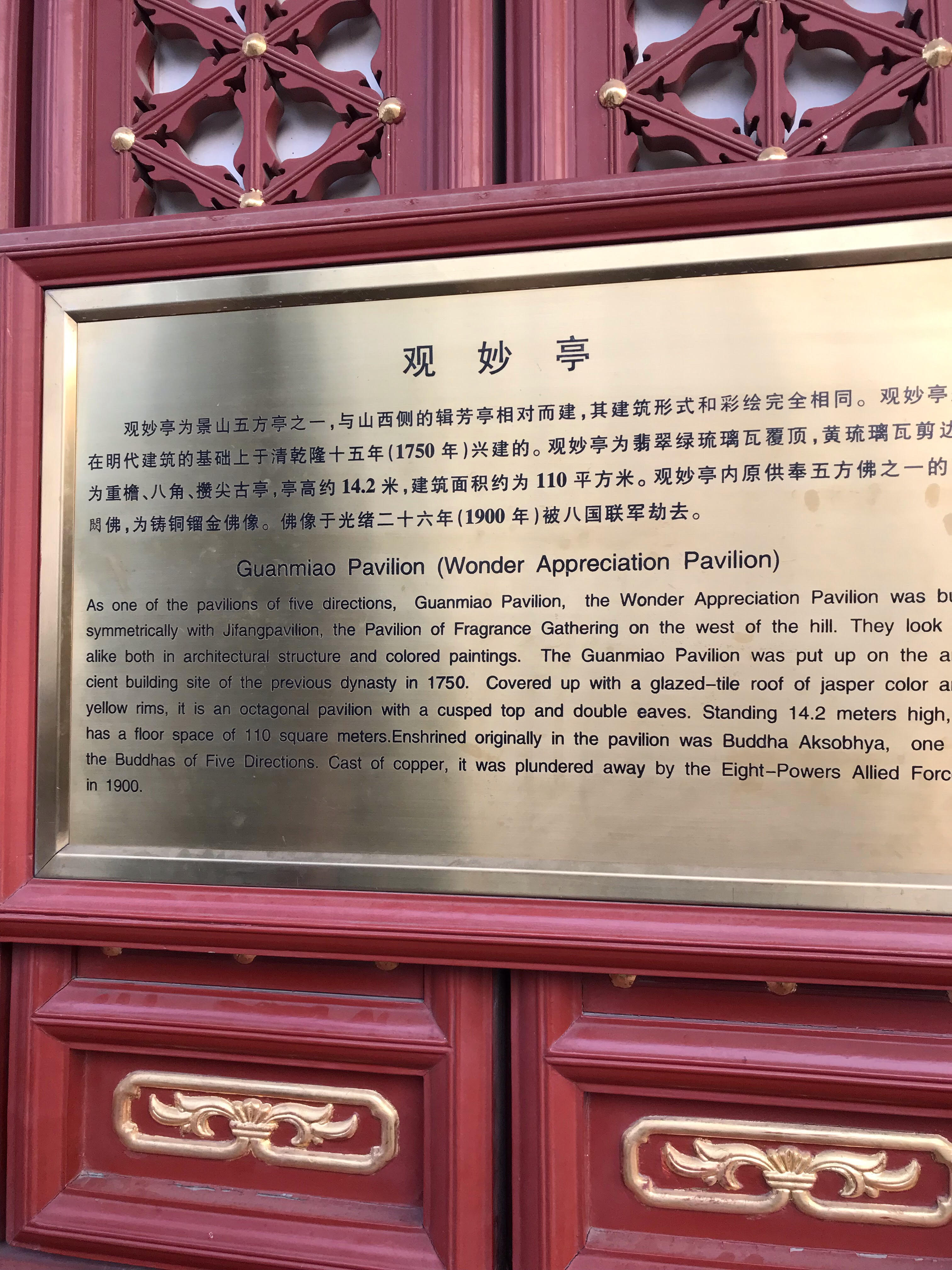
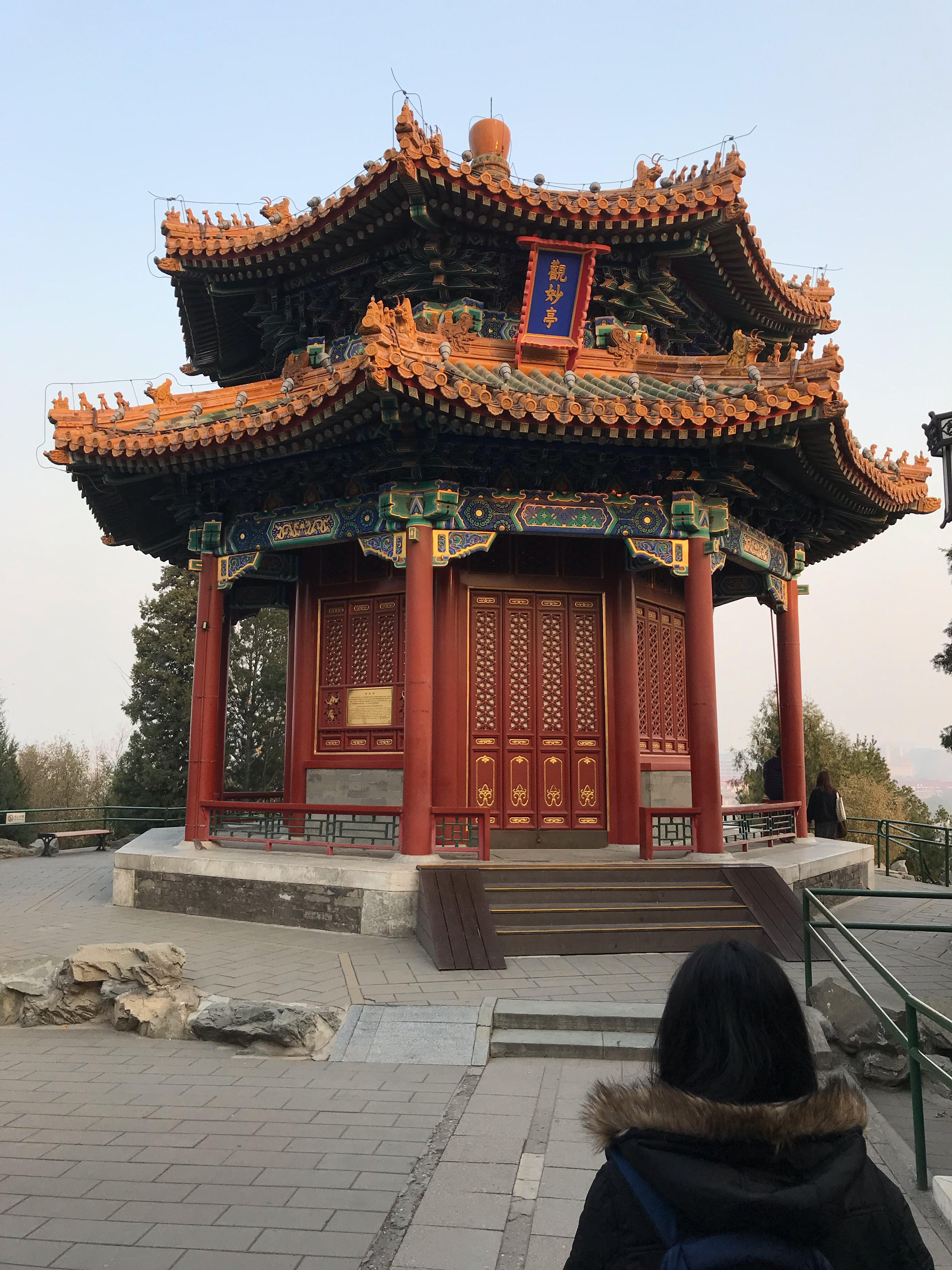
Now for the most important part, the Wanchun Pavilion at the centre, which represents the highest point in the Imperial City area of Beijing. From here, one gets a 360 degree view of Beijing and Tourists, we were told would gather here on clear evenings to view and capture the myriad colors of the sunset. Unfortunately, we had landed on an evening of haze, smog and pollution. Visibility was poor, yet we could make out the Forbidden City, the Drum Tower. etc.
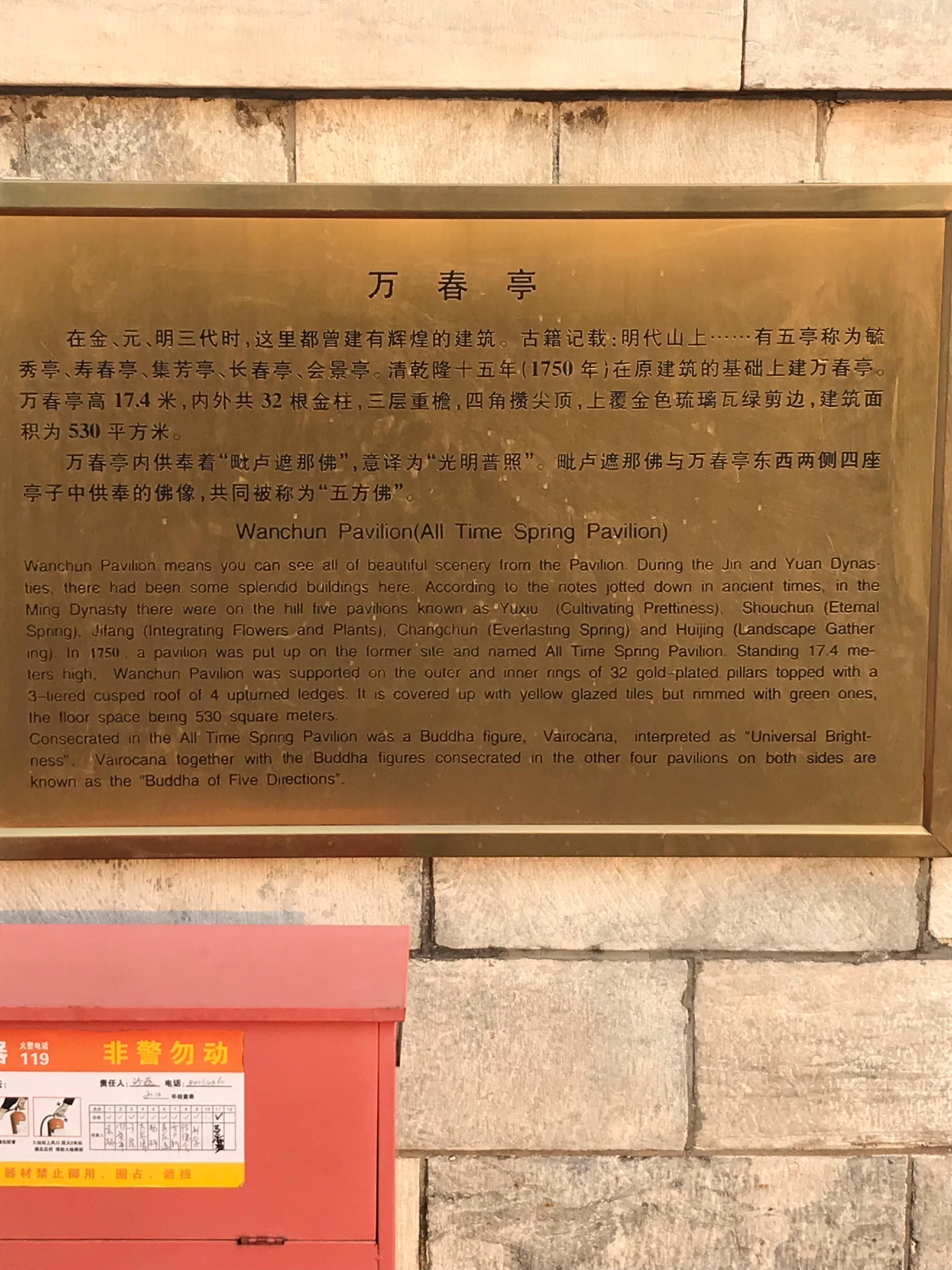

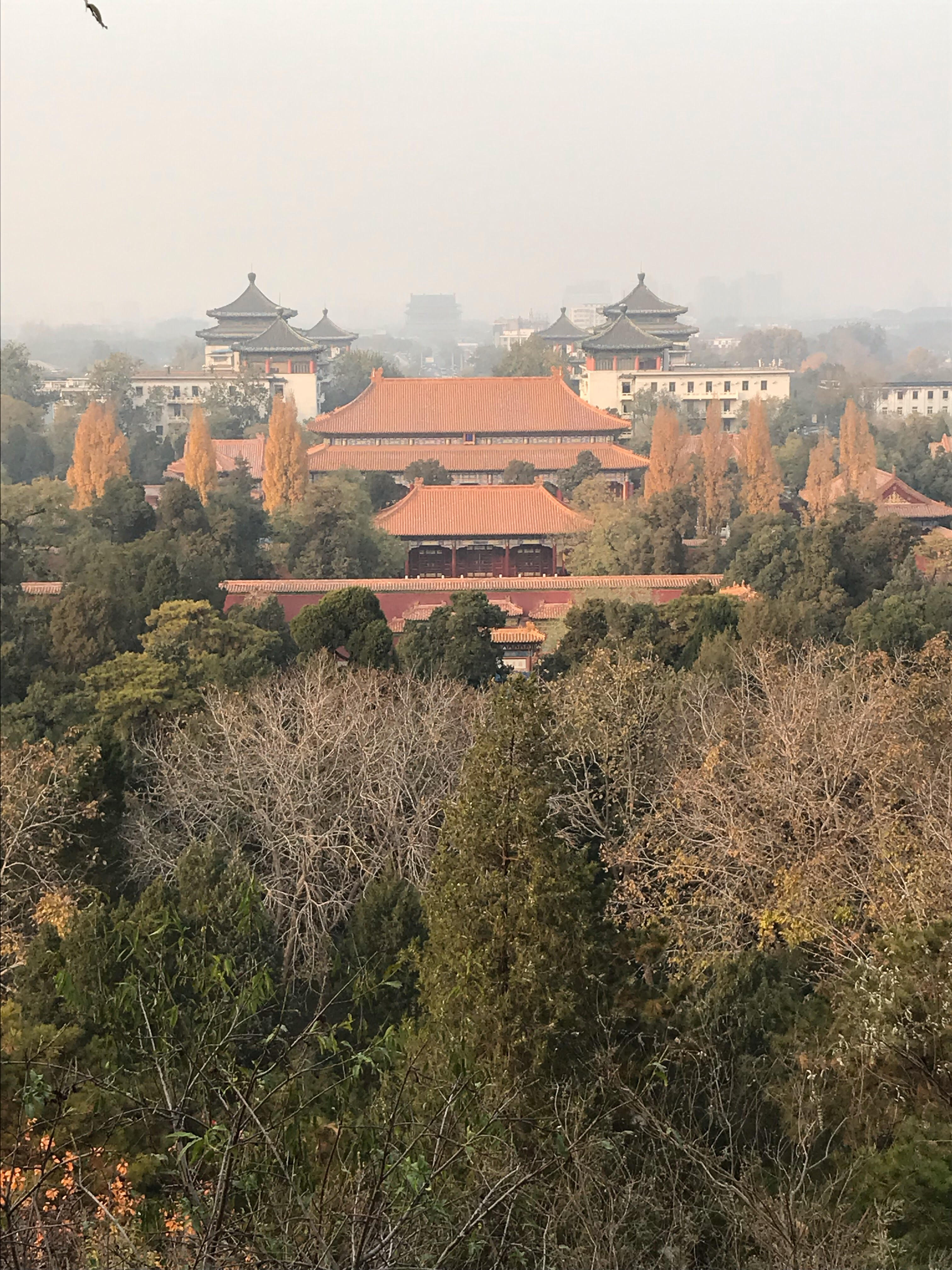
We walked down a comfortable flight of stairs now down to the southern side where we found a Tea house as well as the Yiwang Tower along with a small shop selling souvenirs. A little ahead is the spot where the last Ming Emperor, Chongshen is stated to have committed suicide by hanging from a tree ( Locust tree). The tree is not there anymore but the spot is commemorated by a plaque. As I walked out of the same eastern gate, I was wondering why Chongzhen’s suicide is stated as a sacrifice for his country. Unable to withstand the attacks by enemies as well as internal uprising, he committed suicide, did not die fighting on the battlefield.
All said and done, a must-visit place in Beijing. Am sure would look lovely in spring with all-round greenery and the blazing colors of roses and peonies.
Discover more from BalasBroadcast
Subscribe to get the latest posts sent to your email.
Pingback: Travels through China -3 – Bala's Broadcast